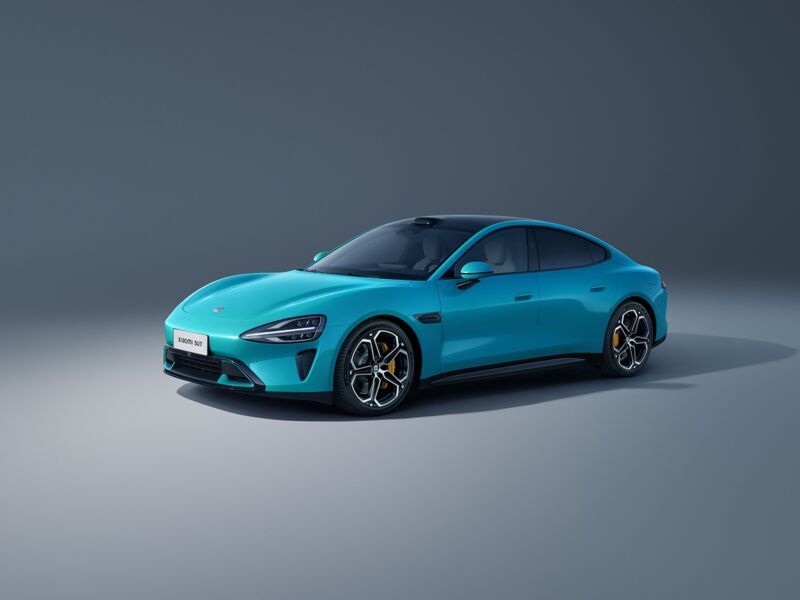
Xiaomi, a Chinese maker of consumer electronics perhaps best known for taking plenty of inspiration from Apple, is getting into the automotive industry. Earlier today in Beijing, Xaiomi CEO Lei Jun debuted the Speed Ultra 7, a luxury electric vehicle that's squarely aimed at the spot in the market currently served by the Porsche Taycan and Tesla Model S sedans.
Xiaomi wanted to branch out from smartphones and tablets to EVs—that wasn't exactly news, as the company announced its plans about three years ago. Lei has big ambitions though; he wants Xiaomi to be a top-five automaker within the next two decades.
Making a car isn't that hard, Lei told the audience. "If you want to build a car, 300 or 400 people and a bit over a billion, and you find a benchmark car and you just need do reverse-engineering and you can do it," Lei said, then acknowledged that "to build a good car it is still very very difficult."
That effort was helped by recruiting designers and engineers like Tianyuan Li and James Qui, who can boast cars like the BMW iX and Mercedes-Benz Vision EQXX on their resumes. And the company is using the controversial Chris Bangle as a design consultant.
The SU7 will come in two configurations, one with a rear-wheel drive powertrain and the other with a twin-motor, all-wheel drive layout. The RWD car uses a 400 V, 73.7 kWh battery pack and has a range of 415 miles (668 km) accordant to the Chinese government's test cycle. With 295 hp (220 kW) and 295 lb-ft (400 Nm), this variant will reach 62 mph (100 km/h) in 5.3 seconds.

The AWD SU7 comes with a 101 kWh pack that runs at 800 V—that enables much faster charging. The pack also gives this version a range of 497 miles (800 km), again based on the Chinese test cycle, not the EPA's. The twin-motor SU7 has a lot more power and torque, offering 663 hp (495 kW) and 618 lb-ft (838 Nm), sufficient for a sub-3 second 0-62 mph time.
Although Xiaomi is bringing in batteries from CATL, it says the motors are its own design and claims that the current spec, dubbed V6s, exceeds anything currently made by Tesla or Porsche in terms of power to weight or speed, reaching 21,000 rpm and generating 6.78 kW/kg (compared to 6.22 kW/kg for Tesla and 5.29 kW/kg for Porsche).
It's also responsible for the software in the car. Much like Sony's Afeela EV, you can expect the SU7 to sync up with all the other Xiaomi gadgets in your life, plus mobile apps and streaming content. And if you were expecting some kind of self-driving capability, you guessed well—there's a roof-mounted Lidar and viewers of the keynote were treated to clips of SU7s driving and parking autonomously.
Xiaomi isn't actually building the cars itself though. Like Sony (which has contracted with Honda) and Fisker (which commissioned Magna), the car will be contract-built, in this case by China's BAIC. Pricing is yet to be revealed, and there's no word yet about any possible US imports.
"Smartphone" - Google News
December 28, 2023 at 10:20PM
https://ift.tt/hdoQEiq
Chinese smartphone company says it wants to build a Porsche challenger - Ars Technica
"Smartphone" - Google News
https://ift.tt/hcVdaZw
https://ift.tt/PQ8cg9C
Bagikan Berita Ini














0 Response to "Chinese smartphone company says it wants to build a Porsche challenger - Ars Technica"
Post a Comment